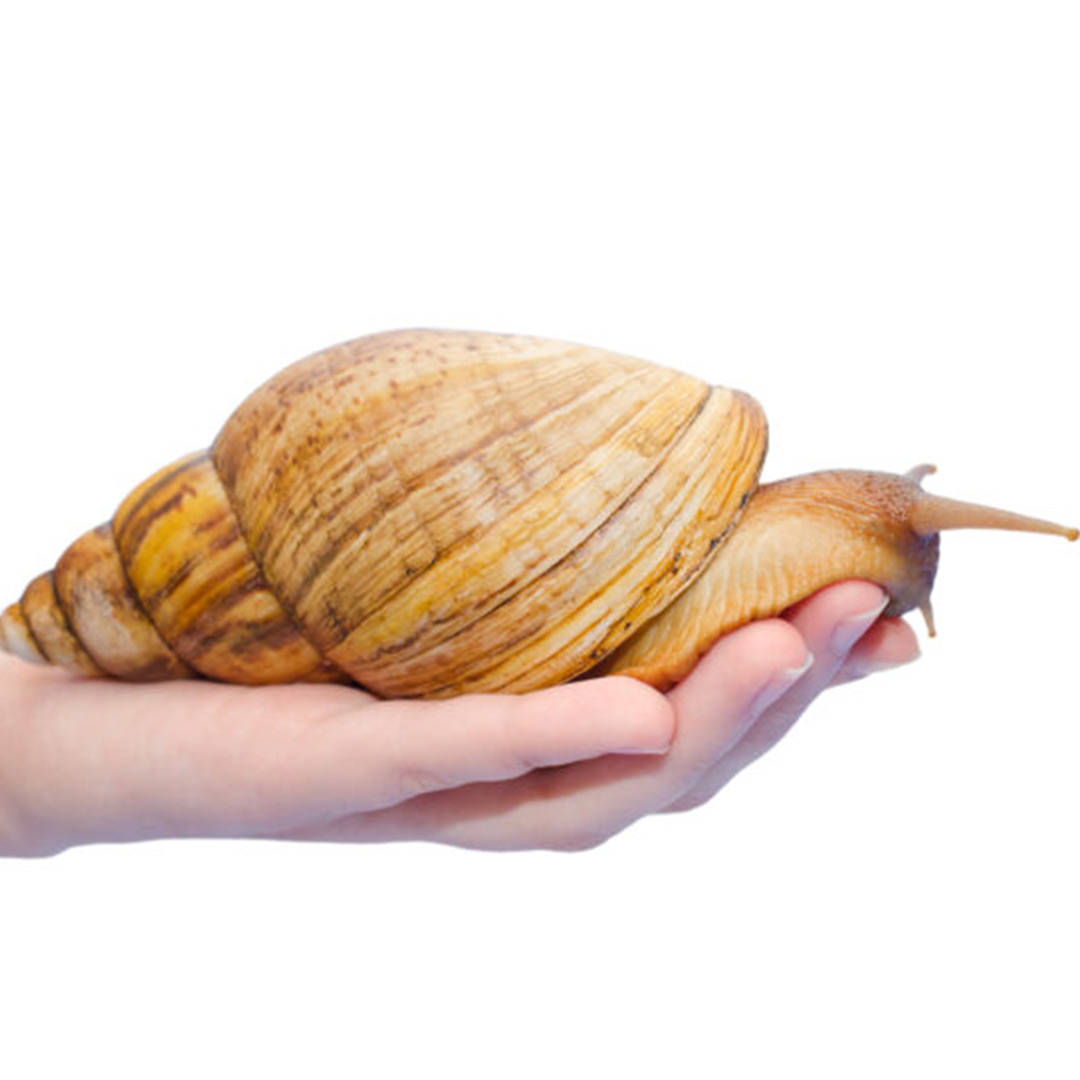Giant Snails may pose a threat to your pets (and to you!)
 Some people like to eat snails. They’re considered a delicacy in some cultures. I’m not big on escargot, but to each their own- but I digress. The topic on hand here is serious- the Giant African Land Snail.
Some people like to eat snails. They’re considered a delicacy in some cultures. I’m not big on escargot, but to each their own- but I digress. The topic on hand here is serious- the Giant African Land Snail.
This particular snail has a voracious appetite, and can grow up to 8″ in length. It will eat more than 500 different types of vegetation, and can damage the stucco on your home. Even worse, it can carry a parasite that can be deadly to both you and your pet. That parasite is Rat Lungworm. I told you it was serious. Rat Lungworm can cause meningitis in humans and can cause severe parasitic infections in dogs. While it’s uncommon, it can be devastating to a pet who is unprotected.
The Giant African Land Snail is an invasive species here in Florida, and it has been eradicated from Florida twice. Now it’s back, and one has been found in Pasco County, and the Florida Department of Agriculture has began a quarantine and eradication program to ensure that the snail population doesn’t spread. Since these creatures can lay close to 2500 eggs a year, the population needs to be stemmed quickly. For more on the efforts to stop the spread of the snail, visit the Department of Agriculture’s website.
Rat Lungworm can be carried by most any slug or snail, not just the African Giant Land Snail. If you see snails in or around your yard, it’s important to ensure you and your pet are protected.
The good news is that Rat Lungworm can easily be prevented, and most monthly chews used to prevent parasites like Heartgard, or products containing milbemycin such as Trifexis. So, if you routinely give your pets their monthly protection, your pet should be protected.
To learn more about Lungworm infections and the symptoms, read more here. (Adobe PDF File)
How to identify an invasive snail versus a native Florida snail, click here.
